The Local Government Women’s Charter turns Twenty-One
It is 21 years since the Victorian Local Government Women’s Charter was created by a group of committed and inspired organisations and individuals. The Charter is now adopted by 71 of the State’s 79 councils and continues to provide a platform for gender equity work across Victorian communities. Gender stereotypes and male dominateddecision-making are acknowledged as two of the key drivers of violence against women. By continuously challenging those drivers and ensuring more support for women to stand in local council elections, the Charter provides an important platform for local government in the prevention of violence against women.
Marg Attley, President of the VLGA said the three principles of the Charter – gender equity, civic participation and diversity – have helped councils and communities to drive gender equity change, and the results speak for themselves. “In 1999 26% of Victoria’s elected councillors were women,” said Cr Attley. “Following the last council elections in 2016, that figure rose to 38%. The number of women mayors and deputy mayors has also risen over time – there are currently 29 women mayors and 8 councils have women as both mayor and deputy mayor. The story is changing – but not fast enough.”
The VLGA has supported the Charter and its work since its inception. Over the past year, with funding from the State Government’s Community Primary Prevention Partnerships program, the VLGA has worked to support councils to reaffirm their commitment to the Charter and actively review and reinvigorate efforts around gender equity.
During May two Charter Champion networking lunches were held to celebrate 21 years of the Charter and to provide an opportunity for women to talk about their own stories of leadership, challenging gender stereotypes and changing the story. Held in Melbourne and Shepparton, the lunches attracted over 50 women and the level of discussion and insight highlighted just how effective and inspirational our local government women leaders are.
“There is still a long way to go,” said Cr Attley. “Councils need to work harder to resource gender equity work and ensure that the council and the community are leading change and supporting women to participate more fully in local democracy. We are all better off with a world that more accurately reflects gender equality in our community decision-making environments.”
.
The VLGA acknowledges the Traditional Owners of Country throughout Victoria and recognises their continuing connection to land, waters and community. We pay our respects to the Traditional Owners, their elders past, present and future, and to their cultures.
Disclaimer:
The advice provided by the VLGA is intended to be guidance only. It is not a substitute for legal or formal advice from relevant regulatory bodies.
© Victorian Local Governance Association 2023




